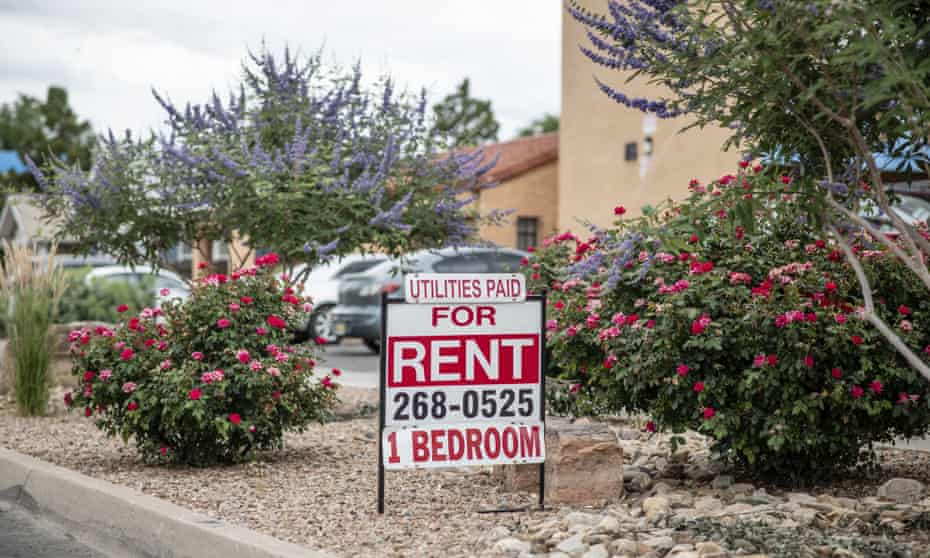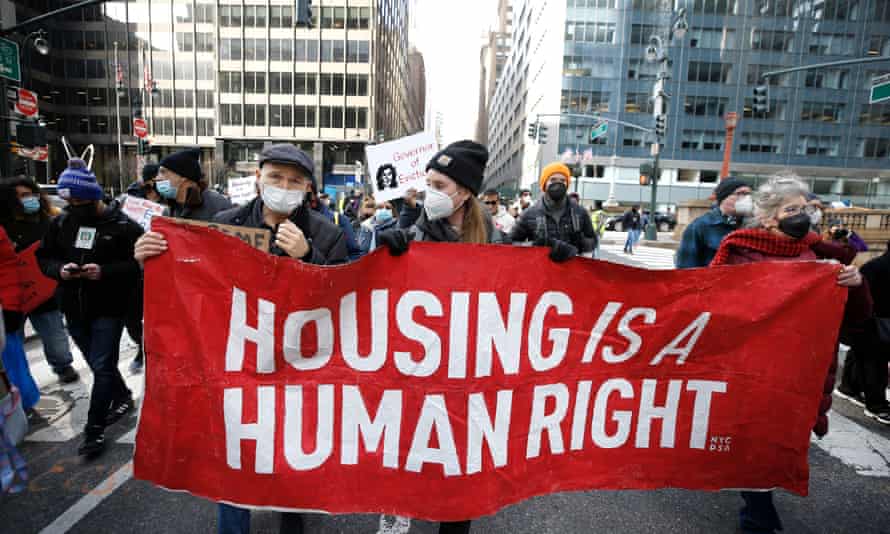
Today is tax day and across America we will be writing checks, filling in forms for both State and Federal taxes in which to ensure our role in the defining marker of equality and parity in American Democracy. Yeah that is working out great, right?
One of the ideas that is instilled in Americans is the dream of Home Ownership. And that has been peddled along with the idea that a College Degree is the key to success. And that is working out great, right?
Owning a home is perhaps the most daunting project one can take on. It is considered wealth building, provides economic security and builds a concept of community as one lives, builds a family, works and lives in a home for at least the term of the Mortgage (that usually 30 years) and in turn sends their Children to local schools, which are paid for through the taxes on said home. This like Meritocracy is a massive myth.
Home ownership MAY have been that at some point in the economic ladder but like Union jobs, decent wages, pension plans and other financial incentives such as supporting infrastructure that includes schools, public transportation, roads and all that align said roads, from crosswalks to street lighting, I suggest you take a trip to a Southern City and see how that fails in every stretch of the imagination. Even some larger cities that are appreciated for density fail in providing that equally across the board to all citizens as you can see in New York, Los Angeles, Seattle, San Francisco.
One book that deals with some of the failures of policy when it comes to issues regarding housing, especially affordable housing is a book called San Francisko. But there are other books that have covered the economic failures such as Evicted, Nickel and Dimed to name a few. The reality is that housing has always been a NIMBY issue by many regardless of their political and economic leanings. They may be for different reasons but the issue is the same when it comes to costs. And by that we mean Property Tax. This is the least transparent of tax systems and this article about how New York City demonstrates that the poorer homeowner often subsidizes the richer home owner when it comes to the way taxes are assessed.
And this is not just in New York, Colorado is facing a similar situation. And the move to remote work led many to find themselves relocating to cheaper environs in which to work and live and surprise they are not the Nirvana one imagines. As I can attest living in Nashville I experienced first hand the United States equivalent of third world country trying to navigate a city with lackluster public transportation, poor sidewalks, no crosswalks, high traffic fatalities, shitty infrastructure when it comes to weather issues and then the largest issue – the failures of the public school system. This article discusses the way these areas nickel and dime you to death when it comes to subsidizing the city when property and/or income taxes are low.
One of the major beliefs in home ownership which still mystifies me is a “starter home” that one buys and maintains to eventually leave and build up or move up. I had never heard of this until the arrival of HGTV and with that flipping also became a new moniker in which to convey they idea of buying properties that a dilapidated and in turn fixing them and turning them over to make a buck. I recall that may have been a factor in the crash of 2008 but again those were different times, right? True lower than lower mortgage rates, less down, shorter term loans and of course Realtors and Mortgage Brokers willing to find suckers, whoops I mean, clients willing to sign the contract. That worked out well, didn’t it?
I could get into a discussion about Real Estate and their MONOPOLY (the reality not the game on which irony that it is based) on selling and buying homes. The recent Missouri Case regarding the National Association of Realtors and that subject is best explained in this article from some of the actual Homeowners behind the case. It is shocking to realize how exploited and dependent we are on agents who have little to no business background, accounting or legal knowledge yet we hand over thousands of dollars to them to exchange property. A Lawyer could do it for a flat fee and so could any Agent, but that is not how it has been done. Okay then.
I have written often about how Real Estate Agents are one step above a Used Car Salesman and again Television has glorified it with varying reality shows that have them raking in the bucks and living the life. That is not the life of the “average” Real Estate Agent. This is one perspective I found that explains wages and incomes in varying markets. But like many other industries, this is industry that is not exempt from those that define corporate hierarchy, or is that Patriarchy? As the the story behind the such as this reason the NAR (irony that the acronym is so close to the NRA) head stepped down. Or this story about another Real Estate Agency, eXp, and their “issues” regarding harm. But just a review of a search in the NY Times brings article after article about the real estate industry and its many “issues.”
Aside from that industry that has contributed to housing costs, housing shortages and denting one’s savings via commissions and costs (come on do you really need to stage a home?) that ultimately come out of the seller’s pocket, there is little to no reason to believe that the equity you have built in your home for many will entitle them to a million dollar retirement. Again that is the reality of real estate, the rich stay richer, the poor stay well less poor in some cases if they have a hot house in a hot market.
But the real problems with home ownership other than maintenance which includes insurance, upkeep as those two factors with Climate problems of late are placing burdens on many, is the biggest check one will write – Property Taxes.
I have reprinted this editorial from the Times regarding this issue and it is something that we have to ask why? As I live in Jersey City the city mentioned in the article I can see firsthand what happened to this city and the aftermath of what it means for its residents, past.
It’s Time to End the Quiet Cruelty of Property Taxes
April 11, 2024 The New York Times Guest Essay
By Andrew W. Kahrl
Dr. Kahrl is a professor of history and African American studies at the University of Virginia and the author of “The Black Tax: 150 Years of Theft, Exploitation, and Dispossession in America.”
Property taxes, the lifeblood of local governments and school districts, are among the most powerful and stealthy engines of racism and wealth inequality our nation has ever produced. And while the Biden administration has offered many solutions for making the tax code fairer, it has yet to effectively tackle a problem that has resulted not only in the extraordinary overtaxation of Black and Latino homeowners but also in the worsening of disparities between wealthy and poorer communities. Fixing these problems requires nothing short of a fundamental re-examination of how taxes are distributed.
In theory, the property tax would seem to be an eminently fair one: The higher the value of your property, the more you pay. The problem with this system is that the tax is administered by local officials who enjoy a remarkable degree of autonomy and that tax rates are typically based on the collective wealth of a given community. This results in wealthy communities enjoying lower effective tax rates while generating more tax revenues; at the same time, poorer ones are forced to tax property at higher effective rates while generating less in return. As such, property assessments have been manipulated throughout our nation’s history to ensure that valuable property is taxed the least relative to its worth and that the wealthiest places will always have more resources than poorer ones.
Black people have paid the heaviest cost. Since they began acquiring property after emancipation, African Americans have been overtaxed by local governments. By the early 1900s, an acre of Black-owned land was valued, for tax purposes, higher than an acre of white-owned land in most of Virginia’s counties, according to my calculations, despite being worth about half as much. And for all the taxes Black people paid, they got little to nothing in return. Where Black neighborhoods began, paved streets, sidewalks and water and sewer lines often ended. Black taxpayers helped to pay for the better-resourced schools white children attended. Even as white supremacists treated “colored” schools as another of the white man’s burdens, the truth was that throughout the Jim Crow era, Black taxpayers subsidized white education.
Freedom from these kleptocratic regimes drove millions of African Americans to move to Northern and Midwestern states in the Great Migration from 1915 to 1970, but they were unable to escape racist assessments, which encompassed both the undervaluation of their property for sales purposes and the overvaluation of their property for taxation purposes. During those years, the nation’s real estate industry made white-owned property in white neighborhoods worth more because it was white. Since local tax revenue was tied to local real estate markets, newly formed suburbs had a fiscal incentive to exclude Black people, and cities had even more reason to keep Black people confined to urban ghettos.
As the postwar metropolis became a patchwork of local governments, each with its own tax base, the fiscal rationale for segregation intensified. Cities were fiscally incentivized to cater to the interests of white homeowners and provide better services for white neighborhoods, especially as middle-class white people began streaming into the suburbs, taking their tax dollars with them.
Sign up for the Opinion Today newsletter Get expert analysis of the news and a guide to the big ideas shaping the world every weekday morning. Get it sent to your inbox.
One way to cater to wealthy and white homeowners’ interests is to intentionally conduct property assessments less often. The city of Boston did not conduct a citywide property reassessment between 1946 and 1977. Over that time, the values of properties in Black neighborhoods increased slowly when compared with the values in white neighborhoods or even fell, which led to property owners’ paying relatively more in taxes than their homes were worth. At the same time, owners of properties in white neighborhoods got an increasingly good tax deal as their neighborhoods increased in value.
As was the case in other American cities, Boston’s decision most likely derived from the fear that any updates would hasten the exodus of white homeowners and businesses to the suburbs. By the 1960s, assessments on residential properties in Boston’s poor neighborhoods were up to one and a half times as great as their actual values, while assessments in the city’s more affluent neighborhoods were, on average, 40 percent of market value.
Jersey City, N.J., did not conduct a citywide real estate reassessment between 1988 and 2018 as part of a larger strategy for promoting high-end real estate development. During that time, real estate prices along the city’s waterfront soared but their owners’ tax bills remained relatively steady. By 2015, a home in one of the city’s Black and Latino neighborhoods worth $175,000 received the same tax bill as a home in the city’s downtown worth $530,000.
These are hardly exceptions. Numerous studies conducted during those years found that assessments in predominantly Black neighborhoods of U.S. cities were grossly higher relative to value than those in white areas.
These problems persist. A recent report by the University of Chicago’s Harris School of Public Policy found that property assessments were regressive (meaning lower-valued properties were assessed higher relative to value than higher-valued ones) in 97.7 percent of U.S. counties. Black-owned homes and properties in Black neighborhoods continue to be devalued on the open market, making this regressive tax, in effect, a racist tax.
The overtaxation of Black homes and neighborhoods is also a symptom of a much larger problem in America’s federated fiscal structure. By design, this system produces winners and losers: localities with ample resources to provide the goods and services that we as a nation have entrusted to local governments and others that struggle to keep the lights on, the streets paved, the schools open and drinking water safe. Worse yet, it compels any fiscally disadvantaged locality seeking to improve its fortunes to do so by showering businesses and corporations with tax breaks and subsidies while cutting services and shifting tax burdens onto the poor and disadvantaged. A local tax on local real estate places Black people and cities with large Black populations at a permanent disadvantage. More than that, it gives middle-class white people strong incentives to preserve their relative advantages, fueling the zero-sum politics that keep Americans divided, accelerates the upward redistribution of wealth and impoverishes us all.
There are technical solutions. One, which requires local governments to adopt more accurate assessment models and regularly update assessment rolls, can help make property taxes fairer. But none of the proposed reforms being discussed can be applied nationally because local tax policies are the prerogative of the states and, often, local governments themselves. Given the variety and complexity of state and local property tax laws and procedures and how much local governments continue to rely on tax reductions and tax shifting to attract and retain certain people and businesses, we cannot expect them to fix these problems on their own.
The best way to make local property taxes fairer and more equitable is to make them less important. The federal government can do this by reinvesting in our cities, counties and school districts through a federal fiscal equity program, like those found in other advanced federated nations. Canada, Germany and Australia, among others, direct federal funds to lower units of government with lower capacities to raise revenue.
And what better way to pay for the program than to tap our wealthiest, who have benefited from our unjust taxation scheme for so long? President Biden is calling for a 25 percent tax on the incomes and annual increases in the values of the holdings of people claiming more than $100 million in assets, but we could accomplish far more by enacting a wealth tax on the 1 percent. Even a modest 4 percent wealth tax on people whose total assets exceed $50 million could generate upward of $400 billion in additional annual revenue, which should be more than enough to ensure that the needs of every city, county and public school system in America are met. By ensuring that localities have the resources they need, we can counteract the unequal outcomes and rank injustices that our current system generates.



